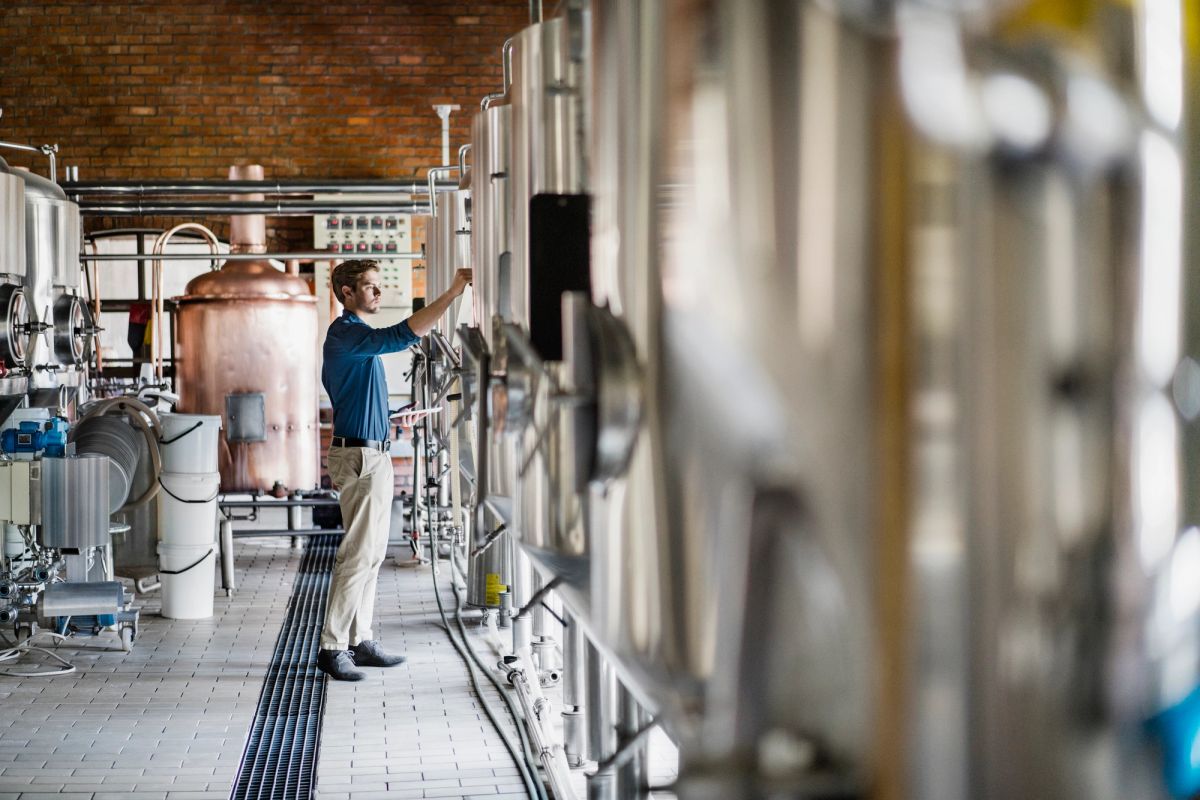An Energy-Intense Industry
Distilling is a very energy-intensive industry. As a result, distillers can greatly reduce their carbon footprint and utility bills with better efficiency.
1. Solar PV with battery
Premium malts can take between 10 and 15 years. While maturing, the whisky is sitting in large warehouses. Solar panels could be put in these warehouses, many distilleries have big fields next to their warehouses to meet future warehouse needs. These fields can be used to install solar panels. Such solar farms work off daylight rather than sunshine, and are suitable for distilleries in Scotland and Ireland, as well as sunnier parts of the world. Solar panels that produce electricity are known as solar photovoltaics (PV).
There have been exponential cost reductions with solar PV. Battery storage costs follow a similar cost reduction curve. Coupled with those trends, non-commodity electricity prices are going to plateau or keep going up. As a result, solar PV with commercial battery storage is an increasingly viable solution.
The advantages of commercial battery storage for solar is the ability to take the excess energy generated by solar panels during the day and store it to power your distillery in the evening and overnight, or as a minimum provide a short term continuity of supply for any grid interruptions. Learn everything you need to know about solar farms here.
2. Boiler optimisation and the electrification of heat
An efficient boiler is another area where distilleries can reduce energy consumption. This is because they are often overlooked in terms of maintenance and performance. Peaky steam loads can hurt your boiler. Sudden changes to the steam load can cause carry-over which occurs when the steam system pulls water from the boiler along with steam. This can cause damage to pipes, valves and instrumentation. Peaky loads can often cause boilers to quench on high and low water levels and affect your production.
Advantages include reduced water treatment costs, reduced energy consumption, reduced wastewater and reduced freshwater usage. Maximise your condensate return by ensuring your steam trapping is working optimally replacing direct steam heating with indirect steam heating and considering a pressurised condensate system.
3. Co-Products
There is a significant opportunity to contribute to environmental targets through the utilisation of co-products in the generation of bioenergy. In addition, treatment of the liquid elements of the co-products, after suitable heat recovery for use in the process can in itself generate bioenergy in the form of bio-gas and minimise the BOD/COD impact of effluent discharges.
These solutions can be quite technically challenging and involve significant capex and increased maintenance costs. The advantages are still strong with various Government supports still available in many developed world jurisdictions and the overall strong sustainability message that these sorts of investments indicate.
4. Energy Data
In your distillery, data is everywhere. CoolPlanetOS can bring all this data together and turn it into actionable and meaningful insights to save you money, reduce carbon emissions and reduce energy consumption.
Easily accessible through your web browser, the software integrates with an almost endless array of systems, bringing valuable data together in one place. CoolPlanetOS benefits include increased efficiency, visibility of data, improved reliability/uptime, reduced energy spend, lower carbon footprint, better throughput, optimised processes, liberation of time/ KPI reporting and reduced resource spend.





